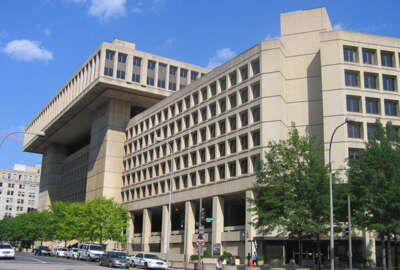
New FBI headquarters gets go-ahead from House committee
Congress has moved one step closer to authorizing the funds for a new FBI headquarters, but the General Services Administration must still finalize the location of...
Congress has moved one step closer to authorizing the funds for a new FBI headquarters, but the General Services Administration must still finalize the location of the new campus.
The House Transportation and Infrastructure Committee on Wednesday gave the go-ahead for $834 million in federal funds for GSA’s proposal to consolidate the FBI’s office space from more than a dozen different buildings into a single campus. The FBI’s unified campus would cut the agency’s real estate footprint from 3 million feet to 2.1 million feet.
Committee chairman Rep. Bill Shuster (R-Pa.) praised the move to a consolidated campus, but called for strong congressional oversight to keep the project from running behind schedule or over budget.
“This will greatly improve the FBI’s security posture and its operations, and save money. But because of the size and complexity of the project, it will important to ensure there is strong congressional oversight to keep the project on time and on budget,” Shuster said.
Under the current plan, GSA and the FBI would pay for the headquarters project from two different sources: appropriations and the exchange of its current headquarters, the J. Edgar Hoover FBI Building in downtown Washington.
President Barack Obama requested $1.4 billion in his 2017 budget proposal for the project, which the FBI and GSA would split. The agencies secured an additional $390 million for the project under the fiscal 2016 omnibus spending bill.
Rep. Lou Barletta (R-Pa.), chairman of a subcommittee on public buildings, outlined the enormity of the proposed construction project, and the challenges involved.
“What makes this project challenging is it is not a simple construction project of a single building. The project will be a secure campus with separate visitor screening, its own utility plant and specialized security requirements,” Barletta said.
Ranking member Peter DeFazio (D-Ore.) expressed some concern that GSA would be hamstrung by selling the old FBI headquarters in downtown Washington, D.C. while also building the new FBI campus.
“I am concerned that they’ve come up with this bizarre construct where they’re going to try to get someone to bid on buying the old FBI headquarters and building the new one. I think pairing the two is stupid, it’s certainly going to limit the number of people who are interested in constructing and bidding on the new FBI headquarters. I’m concerned that we won’t get full value for the downtown property, and I assume this is being done by GSA because they don’t want to ask for an appropriation for the entire new project, so they’re just going to muddy up the water here and mush the two together,” DeFazio said.
GSA originally planned to announce the site of the new FBI headquarters this December, but pushed the decision back to March 2017. In 2014, GSA and the FBI narrowed its choices down to three finalists: the Greenbelt Maryland Metro Station; Landover, Maryland, and Springfield, Virginia.
The resolution, which also includes leases for Customs and Border Protection, the Food and Drug Administration, the National Archives and Records Administration and the National Institutes of Health, projects nearly $60 million overall in reduced lease costs.
Copyright © 2025 Federal News Network. All rights reserved. This website is not intended for users located within the European Economic Area.
Jory Heckman is a reporter at Federal News Network covering U.S. Postal Service, IRS, big data and technology issues.
Follow @jheckmanWFED



